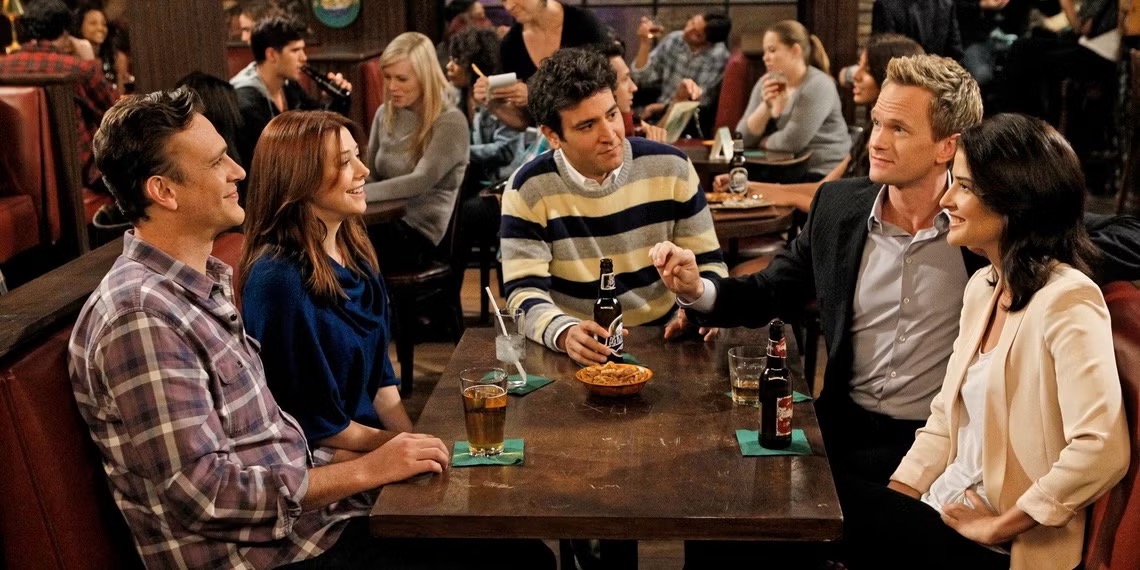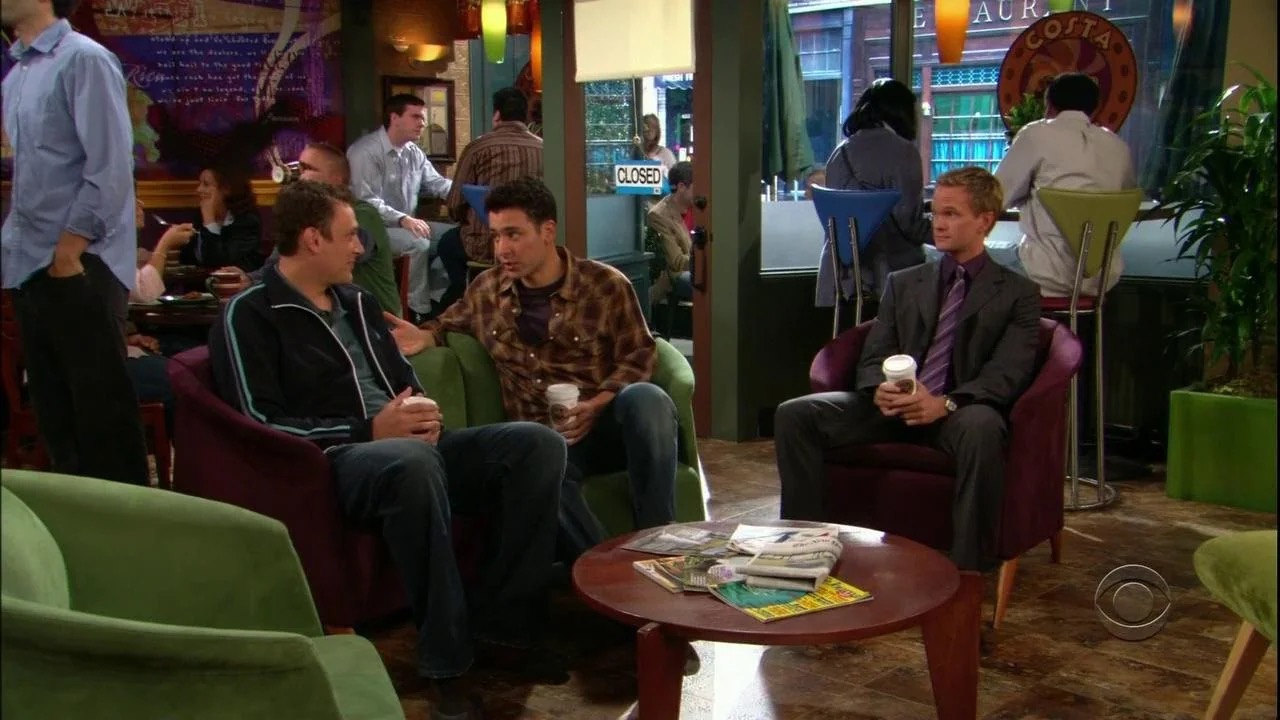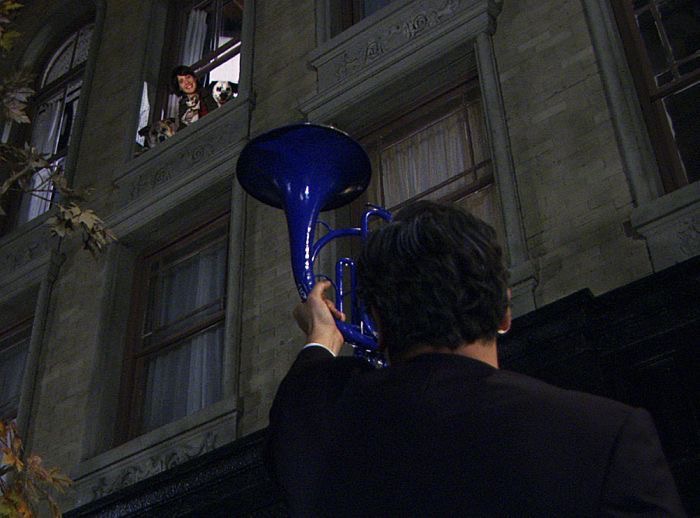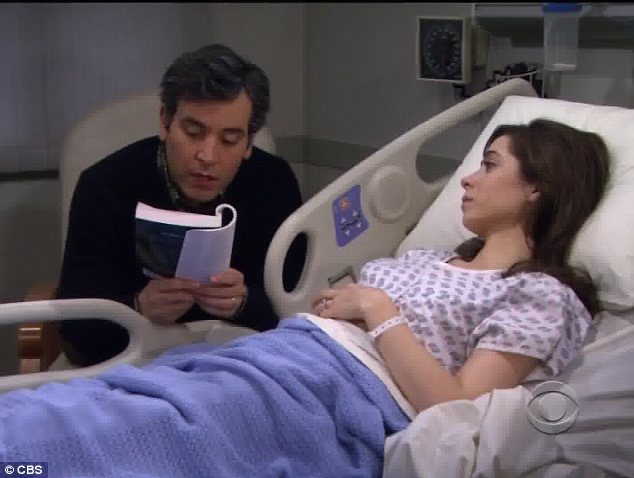
Why I’m a Fan of the ‘How I Met Your Mother’ Finale
Kids, I might be alone here, but I’m a fan of the controversial, polarizing series finale of the sitcom “How I Met Your Mother.”
If you’re wondering why I should care about a show that ended 10 years ago and why I’m bothering to write about it now, well, maybe you haven’t been paying attention to the purpose of this blog. As I noted in my introductory post for “A Fan’s Notes” in February, no topic is “too big or too small, nor too serious or too whimsical.”
My wife, Sandy, and I were among the millions of viewers who watched “How I Met Your Mother” (abbreviated as HIMYM from here on out) during its original run on CBS from 2005 to 2014 and became fans. Recently, I binged it again on Netflix. During that repeat viewing, I realized I’m still a fan of everything about the show—the characters, the storylines, and, yes, even how it wrapped.
I concluded that the last episode was legen—wait for it—dary! Legendary!
If you didn’t get that reference, it’s probably clear by now that this post will make sense only for people who watched the show. Even if you didn’t, I hope you’ll read on. I’ll provide the essentials so you can follow why the finale was so polarizing and why I found it pitch-perfect.
And I promise I won’t take as long to make my point as Ted took to tell his kids how he met their mother. So, please pull up a seat, grab a cocktail (anything but grape Scotch), and settle in for the story of how I became a fan of HIMYM and why the finale resonated with me.
HIMYM recap
The show begins in 2030 with the future Ted Mosby (Josh Radnor, with future Ted voiced by Bob Saget) telling his kids the long and winding story of how he met their mother. Ted starts in the present day, 2005, when he was living with his best friend from college, Marshall Eriksen (Jason Segel), in New York.
Ted, Marshall, and Marshall’s fiancé, Lily Aldrin (Alyson Hannigan) soon meet Barney Stinson (Neil Patrick Harris), who joins their inner circle. In the pilot, Ted meets a woman named Robin Scherbatsky (Cobie Smulders). He asks her out but regretfully tells her he loves her on their first date, ruining what could have been a great relationship. Even though things don’t work out, the group befriends Robin, and she becomes part of their gang.
Over the next nine seasons and 208 episodes, the show chronicles the quintet’s adventures through their 20s, 30s, and beyond. HIMYM details the group’s hookups and breakups, zany adventures and poignant moments. It features celebrity cameos, quirky side characters, inside jokes, and ridiculous but hilarious storylines.
Relationships are core to the show’s ethos, as is Ted’s quest for a wife and kids. Ted and Robin date for a while, but they later break up. Robin dates Barney, too, and they wed in the final season before announcing their divorce as the series ends. Ted and Robin eventually find their way back to each other—but we’ll get to that.
I found HIMYM enjoyable because it humorously chronicled the lives of these five close-knit friends as they grew up, grew apart, and then drifted back together. While I find the show entertaining and funny, and while HIMYM was popular during its heyday, it never drew the same loyal fan base as shows like “Friends,” which aired from 1994-2004 and was an inspiration.
Speaking of “Friends,” in one episode, Ted, Marshall, and Barney find themselves in a coffee shop, a la Central Perk, but decide it’s lame and that they’d rather be drinking at their favorite bar, MacLaren’s, the site of many of the show’s scenes.

“Hanging out at a coffee place,” Barney says, “not nearly as much fun hanging out in a bar.”
Kids, this is true.
But I digress. Which is fitting, because digressing is precisely what Ted does throughout the series.
The finale
One of many running jokes in HIMYM is that Ted takes forever to tell his kids how he met their mother. She’s not introduced until the last episode of the penultimate season, and then it’s only a brief scene of her buying a train ticket.
In Season 9, the final season, we finally get to know the mother in a series of flash-forwards and flashbacks. But it’s not until the series finale that we glimpse the moment, at last, when Ted formally “meets” the mother in a heartwarming and tender encounter. Her name is Tracy McConnell (Cristin Milioti).
This is where the controversy begins.
In the lead-up to that scene, we discover through present-day Ted talking to his kids that Tracy had died six years earlier, 11 years after she and Ted met and fell in love.
With Tracy gone and Ted still harboring feelings for Robin, Ted goes after Robin in the show’s final scene—one that involves a blue French horn, several dogs, and a third-story window greeting, all references to the first episode. They exchange an almost bittersweet smile, and it’s clear those two are bound to live “happily ever after.”

Then, the credits roll. Ted and Robin get the so-called fairytale ending, not Ted and Tracy.
Longtime fans almost universally despised how the series ended. They hated it. After enduring nine seasons, only to learn that the titular “mother” was no longer alive, they felt betrayed. This, despite the myriad clues and regular foreshadowing throughout nine seasons that Ted and Robin would end up together.
Was it a cheap plot twist to unite two main characters and have them find forever love rather than Ted and the mother of his children? Were the writers giving fans the finger by not tying things up in a pretty bow? Was it some strange game of “Slapsgiving” and the audience was Barney?
Or did that controversial finale stay true to the show’s core themes of love, loss, friendship, and the messiness of real life even as we strive to make things perfect? Yes, kids, this is what I believe, which I’ll explain further below.
The debate over the finale makes me think of “Annie Hall,” Woody Allen’s masterpiece I wrote about a few months ago for “A Fan’s Notes.” Toward the movie’s end, the lead character, Alvy Singer, says to the camera while casting for his screenplay, “You’re always trying to get things to come out perfect in art because it’s real difficult in life.”
I’m sure that’s the crux of fans’ disappointment in the HIMYM ending. Based on comments I’ve seen online, they wondered why the writers couldn’t script a series finale so that Ted and Tracy end up together and have their perfect ending. (There is, by the way, an alternate ending on YouTube for fans who didn’t like the original.)
My take is that the show didn’t go with that storybook ending for all the right reasons. And one of them was personal for me.
My defense
In 2008, my mother died, leaving my father widowed and alone after 44 years of marriage. Over the next 11 years, before he died in 2019, he never recaptured the joy of his time with my Mom. Not that I thought finding true love again was possible, but I still wanted him to have another shot at happiness with a new companion.
He instead wound up marrying a horrendous woman who was the subject of a blog I wrote last year. She made his last year on earth particularly miserable. Remembering how both my parents died weighed on me as I rewatched HIMYM, especially the scene in the series finale that involves a hospital bed, Ted’s dying wife, and untold heartache.

It felt real. And it hit home like never before. Life isn’t a fairytale. It doesn’t get wrapped up with a neat bow. And things don’t go as planned.
I then realized the ending of HIMYM was indeed perfect because it showcased how life can be messy and sad, yet something good can come out of profound loss. I wish my father had found such good fortune when his life turned upside down.
Nothing quite sums up the general vibe of the series or better foreshadows the ending more than the closing moments of Season 9, Episode 22, “The End of the Aisle.”
Ted is reflecting on Barney and Robin’s wedding when he says, in a voiceover: “It was a twisting, turning road ... and not everything was perfect. To be honest, not everything to follow would be either. But what is?”
Amen. HIMYM wasn’t perfect. Nor was its finale. But I remain an unabashed fan of both after all these years. For me, the show—including the final episode—used humor and honesty to depict how life can be unpredictable and imperfect yet also bittersweet and, ultimately, beautiful.
Kids, there’s a certain perfection to that. I’d even call it legendary.

Post a comment